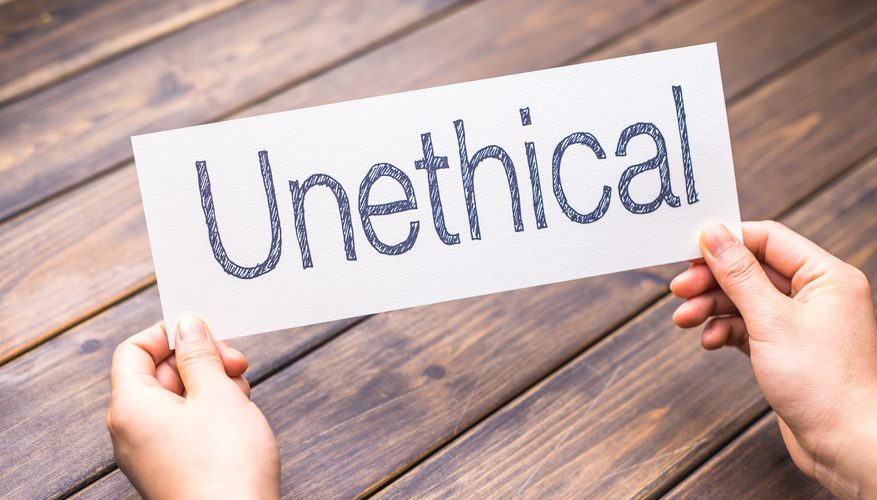Most people love a bit of competition and more importantly winning! Competition pushes us towards our goals and motivates us to improve our own performance, whilst the respect that comes from winning can give a significant morale boost. Winning also increases dopamine and testosterone levels which increases our confidence which in turn increases our changes of success.
Our need to win however, can make us blind to ethical concerns. This can be a problem in all areas for example, managers who need to reach their targets for the quarter, employees who have a strong rivalry etc. A running theme in situations like these is that there are only a number of winning slots, sometimes even just one, with significant stakes such as career advancement and money.
Often, the driving force behind this intense competition is knowing that our performance is being assessed in comparison to our co-workers. In the workplace forced rankings, the vitality curve and stacking systems are frequently used to judge performance. This is where for example, the too 20% of employees are classes as high performers and the lowest 10% face redundancy. In their research Tzini & Jain found that performance evaluation programmes which are based on peer comparison actually promote unethical behaviour. In one study they investigated employees ethical behaviour in self-reporting their performance. 160 participants took part in a 10-question IQ test. In this test they were asked to self-verify their answer and report their scores to the researchers. The participants were randomly assigned to one of three compensation groups: either a fixed participation fee of 10 cents, regardless of performance; a fixed fee with an added bonus based on the reported number of correct answers or finally a fixed fee with a bonus for the top scorers only. The results were quite surprising to the researchers. The groups did not differ much in relation to performance, however most of the respondents over-reported their scores. The level of over-reporting was the highest in the third group (fixed fee with a bonus for the top scorers only). Every participant in this group over-reported their score. As can be seen from this study, competitive pressure and comparisons encouraged breaking the rules.
Organisations continue to debate the advantages and disadvantages of comparison-based performance management systems. However relative comparisons and here to stay so what can be done in order to limit the temptations of ethical breaches that come with this competitive comparative setting? Tzini & Jain suggest consequential reflection: this involves urging employees to reflect on both the positive and negative consequences of the decisions they make. In another study conducted by Tzini & Jain, they found that participants who took a minute to write out the potential consequences were less willing to act in an unethical manner. In another study they conducted, they found that the participants who were encouraged to consider the consequences were significantly less likely to take unethical action than those who were not.
Why is this effective? Decades of research on the mind has shown that most of the time we run on autopilot Being under pressure at work means that a lot if the time we don’t take time to reflect and as a result our habitual behaviours take over. In relation to ethics, this can lead to a self centered attitude, focused on the benefits for ourselves and ignoring the consequences. Tzini & Jain suggest that leaders try the following:
Conduct pre-mortems – Thins involves asking both employees and teams to frequently stop and reflect before making and important ethically charged decisions. Instead of diagnosing decisions after the fact, take the time to think about their positive and negative consequences early on.
Organize ethics hackathons – Regularly get team members together to share any decisions that will be made in the near future. Let employees analyse them, play devil’s advocate, and raise possible problems with various stakeholders.
Train for reflection – Encourage employees to embrace a reflective, mindful approach to decision making. Conduction training sessions on mindfulness can be hugely beneficial in relation to helping employees to take a step back and think critically.
Make ethics part of culture – In the values statements and culture guidelines in your organization you should include consequential reflection.
Tzini & Jain believe that this works because it is cheap, effective and incredibly easy to implement within an organisation. It also extremely unlikely that it will face strong objection from employees. Their research has shown that psychological interventions can be an important part of a company’s arsenal for creating an ethical culture. For more information on our leadership/team coaching see our website www.rfc.ie
Jain, K ( 2018) When Competition Between Coworkers Leads to Unethical Behavior [Online] https://hbr.org/2018/12/when-competition-between-coworkers-leads-to-unethical-behavior
Tzini, K; Jain, K (2018) Human Resource Management Journal. Unethical behavior under relative performance evaluation: Evidence and remedy. 57:6, p1399-1413

